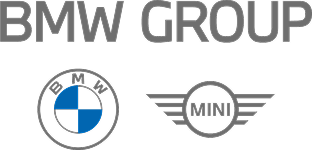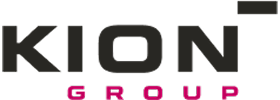Auctions software to maximize savings and supplier value
Auctions are a powerful way to save money and get the best value from suppliers. Strategic, web-based negotiations allow your buyers to quickly receive offers, compare multiple bids and speed up the entire negotiation process.
Request a DemoKey Benefits of QAD Auctions
Drive Profitability
Digital auctions deliver significant price reductions by fostering competition among suppliers.
Boost Efficiency
Accelerate and streamline the negotiation process through automation.
Strengthen Supplier Relationships
Improve relationships with a fair and transparent bidding process that provides all parties a real time view.
Key Capabilities to Uncover the Best Value
Multiple auction styles
Supports English Reverse, English Forward, Dutch Ticker, Japanese Ticker and other auction types.
Real-time updates
Manage and monitor auction activity, calculate results and access information in real-time.
Awarding
Complete the auction cycle by awarding contracts to one or multiple suppliers, either automatically or discretionally, with a complete audit trail.
Supplier performance
Quickly implement agreements, track cost savings and monitor supplier performance.
Customer Success Stories
View All Customer Stories
QAD Integrates with BMW Group’s Systems and Processes
The manufacturer of luxury vehicles benefits from increased supplier collaboration, effective sourcing events and reduced supplier risk.

KION Group AG Transforms Global Procurement with QAD SRM
The leader in industrial trucks and supply chain solutions leveraged QAD SRM to reduce RFQ creation time by 90% and costs by 32%.
Featured Resources
White Paper
Collaborative Supplier Relationships Mitigate Supply Risks
Better understand the benefits of tightening relationships with suppliers to enhance sourcing efforts and cut supply risks.
Blog
SRM in a Time of Fragmented Supply Chains
Learn how to address fragmented supply chains, boost supplier performance and cut risks using integrated SRM solutions.
Blog
Cut Sourcing Costs and Boost Efficiency
Find out how procurement leaders cut costs amid global challenges.
Next Steps

Explore our services
See how QAD’s expertise ensures your project is delivered on time and on value.

Stay up-to-date
Get the latest industry insights and product information delivered straight to your inbox.

Talk to an expert
Questions? Connect with QAD to discuss your supplier management needs and goals.
Frequently Asked Questions
 What is an electronic auction?
What is an electronic auction?
An electronic auction is an online bidding event where multiple suppliers compete in real time to win a buyer's business by submitting bids for goods or services through a digital platform. This dynamic process allows for immediate price negotiation and helps buyers secure competitive pricing.
 What are the common types of auctions?
What are the common types of auctions?
Procurement professionals have several types of auctions at their disposal. The reverse auction is the most common in procurement; in this format, suppliers compete by offering progressively lower prices for goods or services until the buyer chooses the bid that offers the best value. In contrast, a forward auction operates like a traditional auction where buyers incrementally bid up the price, and the seller awards the item to the highest bidder. Another option is the Dutch auction, which begins with a high price that steadily drops until a bidder accepts it. The Japanese auction sees the price increase incrementally, with suppliers dropping out as they can no longer meet the rising price. Finally, in a sealed bid auction, suppliers submit their best and final offers confidentially, unaware of what their competitors have bid. The buyer then evaluates these hidden bids against specific criteria before making their selection.
 Can suppliers collaborate directly during an auction event?
Can suppliers collaborate directly during an auction event?
Yes, suppliers can collaborate to ensure timely access to needed information. This is supported with a secure space for real-time communication, data sharing and streamlined interactions between your business and suppliers—helping to boost efficiency and strengthen supply chain collaboration.
